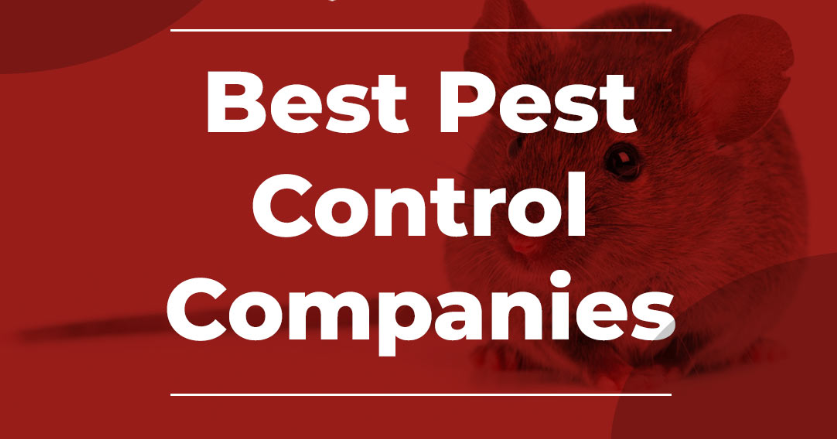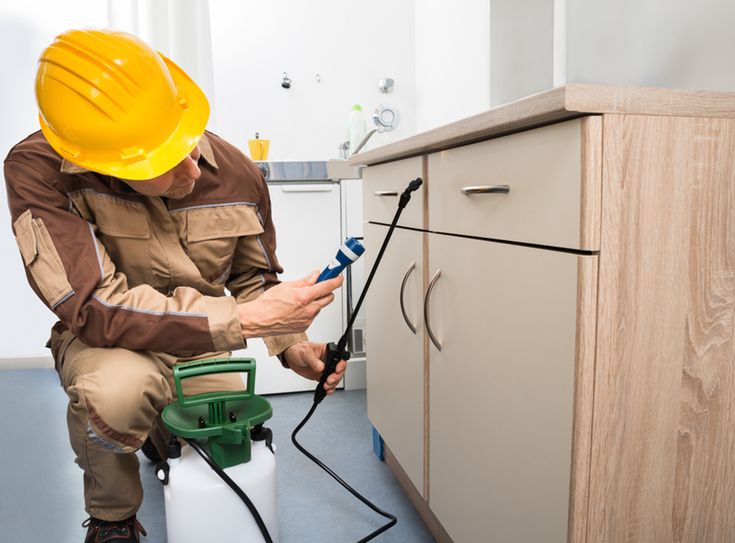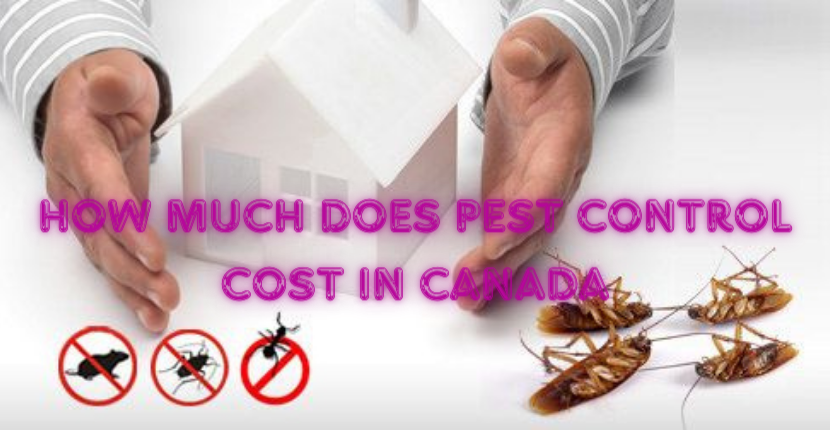Pests can wreak havoc in our homes and harm our health. Whether it’s ants invading the kitchen, mosquitoes buzzing around the backyard, or mice scurrying in the attic, pest control becomes a necessity. However, before seeking professional help, it’s important to understand the cost implications. In this article, we will explore the average cost of pest control in Canada and provide insights into various factors that can influence the price.
Table of Contents
How Much Does Pest Control Cost?
When it comes to how much does pest control costs can vary depending on several factors such as the type of pest, extent of infestation, and the size of the property. On average, Canadians can expect to pay anywhere from $150 to $1000 for pest control services. Keep in mind that these numbers are just estimates, and the actual cost may differ based on individual circumstances.
Factors Influencing Pest Control Costs

1. Type of Pest
Different pests require different treatment methods, and the cost can vary accordingly. For example, treating a small ant infestation would be less expensive compared to eradicating a bed bug or termite problem. The complexity and intensity of the treatment required play a significant role in determining the cost.
2. Extent of Infestation
The severity of the infestation directly impacts the prices of pest control of pest control services. A minor pest problem may require a one-time treatment, while a severe infestation might need multiple visits and ongoing maintenance. The more extensive the pest problem, the higher the cost of eradication.
3. Size of Property
The size of your property also influences the overall cost of pest control. Larger homes or commercial buildings tend to have more areas for pests to hide and breed, requiring additional time and resources to eliminate the infestation. Consequently, the cost of pest control services will be higher for larger properties.
4. Location
The location of your property can also affect the cost. Pest control companies may charge differently based on the region and accessibility of the location. Urban areas with higher competition among service providers might offer more affordable rates compared to remote or rural areas.
Additional Cost Factors to Consider
Apart from the above mentioned factors, there are a few additional cost considerations to keep in mind when seeking pest control services in Canada.

1. Preventive Treatments
While addressing an existing pest problem is crucial, it’s equally important to take preventive measures to avoid future infestations. Pest control companies may offer preventive treatments, such as sealing entry points and applying barriers, which can help minimize the risk of pests returning. Adding preventive treatments to the service package may increase the overall prices of pest control, but it can provide long-term benefits.
2. Warranty and Guarantees
Some pest control companies offer warranties or guarantees on their services. This means that if the pests return within a specified time frame after treatment, the company will return and re-treat the area without charging extra. It’s advisable to inquire about such warranties and guarantees when choosing a pest control provider, as they can provide added value and save you from incurring additional costs if the pests resurface.
Conclusion
The cost of pest control in Canada varies depending on several factors, including the type of pest, extent of infestation, size of the property, and its location. Understanding these factors can help you determine a rough estimate of what you might expect to pay for pest control services. Additionally, considering preventive treatments and warranties can offer extra protection and potentially reduce future costs.
If you’re facing a pest issue, it’s wise to reach out to a professional pest control company to assess your situation and provide a customized quote. Remember, it’s essential to prioritize the health and safety of your home and family, and investing in pest control services is a step in the right direction.
FAQs
What Factors Determine Pest Control Costs?
The cost of pest control is influenced by various factors. The size of the infestation, type of pest, and chosen treatment methods all play a role. Larger infestations often incur higher costs, and the type of pest determines the complexity of the treatment required. Additionally, the chosen treatment method—whether chemical, eco-friendly, or traps—can impact the overall expense.
Are DIY Products as Effective as Professional Treatments?
While do-it-yourself (DIY) products may seem cost-effective, their efficacy varies. DIY solutions can be effective for minor issues, but larger or persistent infestations often require professional intervention. Professionals bring expertise, specialized tools, and potent treatments, ensuring a more thorough and lasting solution to your pest problems.
How Often Should I Schedule Pest Inspections?
Regular pest inspections are a proactive approach to preventing infestations and minimizing costs. For residential properties, an annual inspection is often sufficient. However, high-risk areas or commercial spaces may require more frequent inspections. Early detection through regular inspections can save you money by addressing issues before they escalate.
Can Pest Control Be Bundled with Other Home Services?
Some pest control companies offer bundled services, combining pest control with other home maintenance tasks. This can be a cost-effective option, addressing multiple needs in one service visit. Ensure that the bundled services meet your specific requirements and that the provider is reputable in all aspects of their offerings.
Are Natural Remedies Effective for Pest Control?
Natural remedies can be effective for certain pests and are often preferred by those seeking eco-friendly alternatives. Ingredients like vinegar, baking soda, and essential oils may deter pests. However, their efficacy varies, and for severe infestations, professional intervention is usually necessary for a comprehensive and lasting solution.
What to Do If the Pest Problem Persists?
Persistent pest problems require a strategic approach. First, reassess your prevention methods and eliminate factors attracting pests. If the issue persists, consult with a professional pest control service. They can conduct a thorough inspection, identify the root cause, and implement targeted treatments to eradicate the problem. Timely action is key to preventing further damage and costs.

